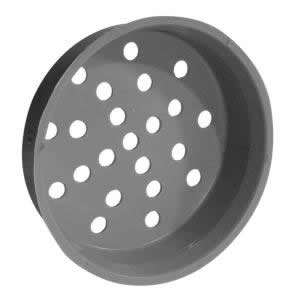Rain Garden Rebate Program
Frequently Asked Questions ~ FAQs
Q: What is a rain garden?
A: A rain garden is a landscaped shallow depression that captures treats and infiltrates stormwater runoff from an impervious area (e.g., rooftop, driveway, parking lot, sidewalk). A rain garden removes nonpoint source pollutants from stormwater runoff while recharging groundwater.
Q: I have a wet spot behind my house; would this be a good place for a rain garden?
A: No, a rain garden is designed to drain within 24-48 hours. If there are consecutive days of rain, the rain garden may take longer to drain. The wet spot indicates poor infiltration either due to compacted soils or heavy clay soils. We do not suggest directing additional water to these naturally wet areas.
Q: Can I put plants on the berm?
A: Yes. To view a diagram of the different zones of a rain garden, please refer to page 28 of the Rain Garden Manual of New Jersey here.
Q: What if I live in an area that is highly populated with deer?
A: Try fencing in the plants, using deer resistant plant species (refer to page 63 of the Rain Garden Manual of New Jersey for suggestions), or using deer retardant sprays.
Q: Do I need to fertilize my rain garden?
A: If native plants are used, fertilizer should not be needed. Native plants with deeper root systems facilitate infiltration and also sustain the landscape through periods of drought. If there are concerns about the fertility of the soil, pick up a soil test kit at your Rutgers New Jersey Agricultural Experiment Station (NJAES) Cooperative Extension county office to have the soil analyzed.
Q: Does a rain garden need to be watered?
A: Yes, frequently during the first year, especially the first few months after planting (particularly if it is in the middle of the summer). There is no need to water until a few days after a rain storm.
Q: What if some plants die?
A: Younger plants will be more susceptible to drowning if they are immersed in standing water for too long. As a rule of thumb, place the most water tolerant plants near the water’s entrance to the garden. Replace the dead plants with species that you know have survived.
Q: How do I know if my soil is suitable for a rain garden?
A: Do a percolation test or an infiltration test. If the infiltration rate is at least one inch per hour, you are good to go!
Q: Can I build my rain garden in clay soils?
A: Yes, but there are some additional measures to take:
- Increase the area and decrease the depth
- Make sure the clay layer is dry (otherwise shovels will seal pores)
- Add soil amendments (using your rototiller)
Amending soil: Replace the first 1-2 feet (below the ponding area) with sandy loam soil. Create your own amended soil by obtaining “bank run” or concrete sand from a nursery and mixing it with compost.
DO NOT USE MASON OR BALL FIELD SAND.
Mix in 3 inches of compost at the top.
For more details refer to: Tips for Rain Gardens in Clay Soils
Local Suppliers: Soil Amendment Materials & Mulch
Landscape Materials, Inc.
311 Roycefield Road
Hillsborough, NJ 08844
908-252-1550
http://www.landscapematerialsinc.com/
Cedar Hill
127 Cedar Grove Lane
Somerset, NJ 08873
800-225-0016
http://www.cedarhilllandscaping.com/
Stone Center
831 East Main Street
Bridgewater, NJ 08807
732-469-4433
http://www.thestonecenter.com/bridgewater/
KLK Trucking
265 Ryan Street
South Plainfield, NJ 07080
(908) 757–4434
http://www.klktrucking.com/
Local Suppliers: Perennials, Shrubs, & Trees
Toad Shade Wildflower Farm |
Bountiful Gardens |
Rutgers Landscape & Nursery |
Arvin Produce & Garden Center |
Ambleside Gardens & Nursery |
The Gardener’s Nook |
Q: Are rain gardens breeding areas for mosquitoes?
A: No. The development of a mosquito from egg to adult takes 10 to 14 days. A mosquito larva must live in water for 7 to 12 days before maturing to the adult stage. There is rarely standing water long enough in a well-designed rain garden to allow mosquitoes to mature to the adult stage. Rain gardens are designed to drain within 24 hours.
Q: What kind of maintenance is involved?
A: Maintenance involves watering for the first year while the plants are being established and weeding. The plants will out-compete the weeds over time.
Q: How far away from a building’s foundation should a rain garden be installed?
A: A rain garden should be installed ten feet away from a building’s foundation if there is a basement. If there is only a crawl space, two feet from the foundation is sufficient.
Q: How do I slow down the speed of water as it enters the garden?
A: Recommendations:
- Attach a perforated plastic diffuser to the end of the roof leader (downspout)

- Use river rock at the entrance point
- Site the rain garden with a 10 – 15 foot grassed buffer between the garden and the roof leader. Use native grasses, and let them grow tall.
Q: What do I do with my existing grass before installing the rain garden?
A: There are two options:
- Remove the turf as sod pieces; reuse it on the berm or another area of the yard
- Kill the grass with an herbicide beforehand
Q: Who is eligible to receive a rebate for installing a rain garden?
A: This is a pilot project which we hope to open to multiple areas throughout New Jersey. The initial pilot is only open to properties in Somerville, NJ. Please refer to this map to determine if your property is within the qualifying area.
Q: How much will I receive for installing a rain garden?
A: Rebates will be in the amount of $3 per square foot of garden up to $450 per property.